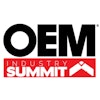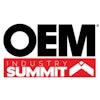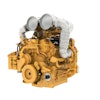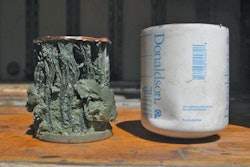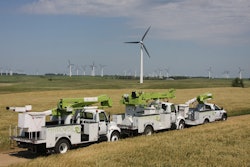Evans Cooling Systems, Inc., developer of the only waterless engine coolant, reports that recent testing with Emisstar LLC, a nationally recognized emissions testing firm, showed a reduction of 3.6% in CO2 emissions and a 4% fuel economy improvement. Emisstar is a clean energy and emissions technology consulting firm that provides independent third party testing services for the development of sustainable transportation technology strategies.
The test was performed on a 2011 Model Year Mack Truck selected from the fleet of Murphy Brown LLC under actual real world operation using portable emissions measurement systems (PEMS) and digital fuel economy meters. It was also noted that the test showed no measureable increase in oil and transmission fluid temperature or engine coolant loss.
“Increasingly more stringent regulatory requirements and fuel input costs are challenging the trucking industry like never before to increase fuel economy, reduce emissions and lower the total cost of ownership,” says Mike Tourville of Evans. “The results with Emisstar provide further evidence of the value Evans waterless engine coolant delivers in these critical three areas.”
Evans Cooling Systems manufactures a complete line of waterless engine coolants for heavy-duty diesel trucks, automotive and stationary engines. The key to Evans Heavy Duty Thermal Coolant is its higher boiling point - over 100 degrees warmer than the operating temperature of most engines - allowing the engine to safely operate at slightly higher temperatures. The huge separation of the boiling point from the operating temperature enables raising the fan-on temperature to 230 degrees, resulting in less fan-on time. The fans on heavy-duty diesel engines draw a considerable amount of horsepower, using significant amounts of fuel.
“Evans waterless coolant can help automakers meet tighter fuel economy and emissions requirements for both vehicles and stationary engines,” adds Tourville. “In today’s economy it is important for fleets to find ways to cut costs, with a minimal impact on the environment.”

